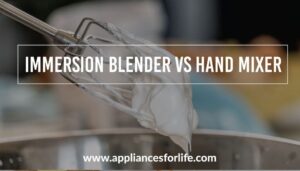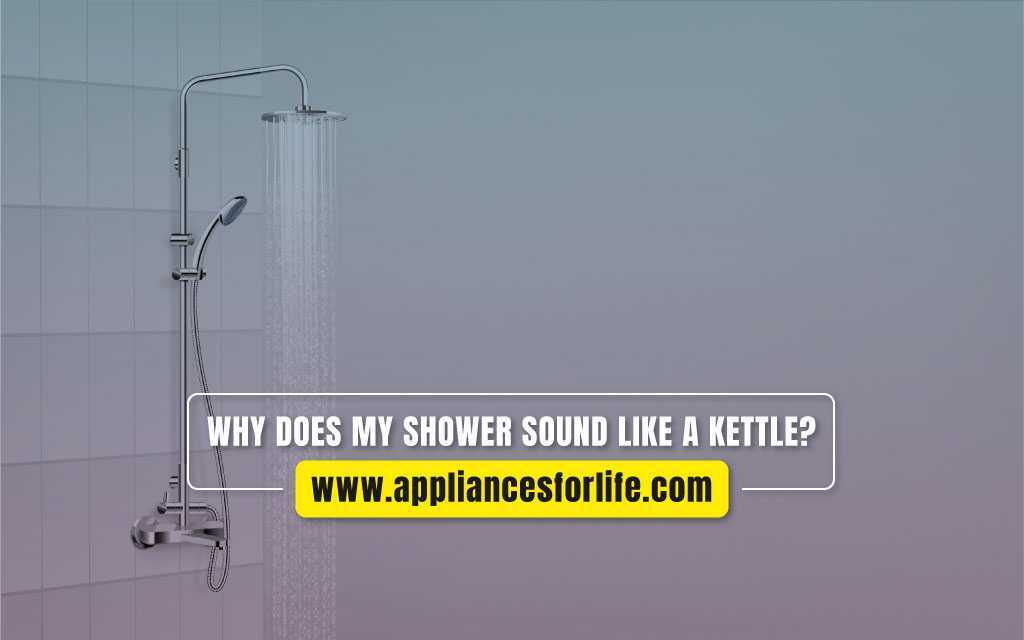Why Does My Shower Sound Like A Kettle
- A shower making a whistling noise is unusual and must be dealt with as soon as it’s observed. This article provides answers regarding why showers may sound like a kettle.
The bathroom is one of the important places in the house. It might as well be underrated because it barely gets mentioned at the expense of other parts of the house, including the kitchen and the bedroom.
The bathroom is one of the most important places in the house, and it should be taken care of. Having a clean bathroom is important because it reflects the cleanliness of the rest of the house. Not to mention, it’s a place where you can take a shower or just relax.
Imagine if your bathroom is not clean. It would be very unhygienic and uncomfortable. A clean bathroom is a sign of a good housekeeper. It shows that you are taking care of your house and paying attention to the details.
It is important to have a bathroom that is clean and comfortable. To have a clean bathroom, you need to have the right supplies. This includes toilet paper, shampoo, soap, and towels. You also need to make sure that the bathroom is cleaned regularly.
The shower is a big part of any bathroom, so you must always take care of it. Dulling blades, clogged drains, and other problems can quickly become the norm if you neglect your shower.
You can do a few simple things to ensure your shower stays in top condition; clean the showerhead once a week with a mild soap or a household cleaner. You can also use a soft cloth to scrub off dirt and debris. If your showerhead is hard to reach, try using a cup to dip down and clean the area around the sprayer.
You should also check the showerhead for mineral deposits at least once a month. If your showerhead shows mineral buildup, you can remove the deposits by soaking the showerhead in vinegar overnight. In the morning, simply rinse the showerhead with warm water and reattach it to the shower.
Without further ado, let’s explore some common shower problems you might encounter and how to fix them.
7 Common Shower Problems
Mineral deposit
Mineral deposits are common in any type of shower and can cause the shower head to make a whistling noise. Deposits can also cause the water pressure to decrease, making it difficult to rinse off. In extreme cases, mineral deposits can completely block the water flow. Most often, these deposits are made of calcium carbonate, which is found in hard water. Although mineral deposits are not harmful, they can be a nuisance.
A calcite deposit is the most likely mineral deposit to cause this problem. If you have hard water, there is a good chance that calcite has built up in your shower head. You can remove these deposits by soaking the shower head in vinegar for a few hours.
Damaged washer on the shower head
If the washer on your shower head is worn out or not working properly, it could make the sound of a whistling shower. You may notice that your water pressure is low or your shower head leaks. If you have a damaged washer, it is important to replace it as soon as possible. Otherwise, you could have a higher water bill or damage your home.
This can be very annoying and even damage your ears if left unchecked. You can usually tell if the washer is damaged by the sound it makes. If you hear a whistling sound, it is likely that the washer is not sealing properly and needs to be replaced.
This can be fixed by replacing the washer. If the diverter valve is not working properly, water can leak out of the shower head. This can be fixed by replacing the diverter valve.
High water pressure
If the water pressure in your shower is too high, it can cause the shower head to make a whistling noise. If your shower has a whistling noise, it is important to lower the water pressure to avoid any damage to your shower. There are a few ways to lower the water pressure in your shower. Turning the water pressure knob on the shower head to the left is one way. Another way is to use a shower head with a built-in pressure regulator.
You can check the water pressure in your home by using a water pressure gauge. Most hardware stores sell water pressure gauges. To check the water pressure in your home, simply attach the gauge to a faucet in your home and turn on the water. The needle on the gauge will tell you what the water pressure is.
The water pressure in your home should be between 40 and 60 psi. If the pressure is higher, it can cause problems with your plumbing and shower head. If you hear a whistling noise from your shower, having a plumber check the pressure in your home is a good idea.
Shower head not installed properly
If the shower head is not installed correctly, it can cause the shower to make a whistling noise. This is often caused by the shower head not being screwed on tightly enough. Another possible cause is that the washer on the shower head is old and needs to be replaced. In either case, the solution is relatively simple. First, ensure the shower head is screwed on as tight as possible.
A variety of factors can cause improper installation. The most common reason for improper installation is that the washer meant to seal the shower head is not put in correctly or is not the right size. If the washer is not sealing the shower head correctly, it can cause the water pressure to be too high, which will cause a whistling noise. Another reason for improper installation is that the shower head is not screwed on tight enough.
Presence of air in the pipes
If there is air in the pipes, it can cause the water to make a whistling noise as it passes through. The air may exist in the pipes due to a leak or other problem. Simply turning on the shower can cause the noise to occur. In many cases, the air in the pipes is not a serious problem and can be remedied without calling a professional.
If the pipes are not properly insulated, the water inside them can freeze and cause the pipes to burst. If the pipes are not properly ventilated, the water can build up and cause the pipes to burst.
The easiest way to eliminate this noise is to bleed the pipes by opening the valve at the highest point in the system and allowing the water to run until it is clear. If there is a lot of air in the system, it may be necessary to do this several times.
Loose pipes
If the pipes are loose, they can vibrate and cause your shower to whistle. There are several things you can do to fix this problem. You can use pipe insulation to help dampen the noise. You can also use pipe tape to help secure the pipes and prevent them from vibrating. If the problem persists, you may need to replace the pipes.
This can fix by replacing the pipes or tightening the pipes. If you have a leaky pipe, your shower may also be whistling. The whistling noise is caused by water passing through the small opening of a leaky pipe. The best way to fix a leaky pipe is to replace the pipes.
Leaky shower faucet
Your shower might be making a whistling noise for different reasons. If you have a leaky faucet, it can cause your shower to make a whistling noise. If the diverter valve is not installed properly, it can also make a whistling noise. There are many other reasons your shower might be making a whistling noise.
When you turn your shower on, the water should flow out of the shower head with only nominal noise. If your shower produces a high-pitched whistling noise every time you turn it on, your faucet may be to blame. Sometimes, the problem may be a loose washer or limescale deposits. Whatever the problem, it is generally an easy fix that any homeowner can perform.
How To Fix These Problems In 7 Easy Steps
There are several ways you can fix this problem:
Step 1
Start by removing the shower head and soaking it overnight in a vinegar solution (approx. 1 cup of vinegar to a gallon of water). This first step will help to break down the mineral deposits that are present inside the shower head.
Step 2
Next, use a toothbrush to scrub away any remaining deposits. (do not use the same toothbrush you use to brush your teeth).
Step 3
Rinse the shower head with clear, fresh water. Press the button on the shower arm to release it from the wall. Reattach the shower head to the arm.
Note: If you do not want to take the opportunity to clean your shower or tub, you can always clean it later.
Step 4
Allow the shower to run for a few minutes, then check to see if the noise has ceased. If it has not, move on to the next process stage.
Step 5
If the noise persists, try replacing the washer on the shower head. This common wear item may need to be replaced every few years. The washer is easy to replace, but you may want to enlist a professional to do the work for you.
Step 6
If you still have mineral deposits in your shower head, you may need to descale it (don’t worry, this is much simpler than it sounds!). All you need is a plastic bag and some vinegar. Fill the plastic bag with vinegar and attach it to the shower head with a rubber band. Let it soak for a few hours (check it from time to time), then remove and scrub away the deposits with a toothbrush or old toothbrush.
Step 7
If there is still some noise from your shower, try adjusting the temperature control to see if that resolves the problem. If not, you may need to call a plumber to investigate further.
If your shower is not making any noise, great! If it is, the next step is to adjust the temperature control. With some models, you may have to lower the temperature slightly to minimize the noise. Once you’ve made these adjustments, we recommend turning off the water and checking for leaks.
Frequently Asked Questions
1. Why does my shower make a squealing noise?
Your shower might make a squealing noise for several reasons. The most common reason is that your showerhead needs to be replaced. Over time, mineral deposits can build up in your showerhead, causing it to spray in different directions and make a squealing noise. Another common reason is that your pipes are not properly anchored. If your pipes are not properly anchored, they can rub against each other and make a squealing noise.
2. How to fix high-pitched noise from the shower?
Many times, homeowners experience strange noises emanating from the shower. If you have a high-pitched noise from your shower, there are a few possible causes. The first thing to check is the water pressure. If it is too high, it can cause noise in the pipes.
Conclusion
It is very unusual for a shower to sound like a kettle. It always indicates that there is something wrong with the shower and something has to be done about it as soon as possible. A shower should sound like a cascade of refreshing water, not like a noisy kettle.
There are a few reasons for this. The most common cause of a kettle-like noise is limescale. Limescale is a hard, chalky deposit that can build up in your shower over time. It’s usually caused by hard water, which has high mineral content.
We hope that this article has helped you understand the causes and how you can solve a noisy shower.
01 HOURS 03 MINUTES
ESTIMATED TIME DESIGNING AND UPLOADING THIS ARTICLE
10 HOURS 36 MINUTES
ESTIMATED TIME RESEARCHING AND WRITING THIS ARTICLE
You Might Also Like

Ninja Blender Not Working: 3 Possible Causes
Ninja blenders have become very popular over the years, and that’s because blenders have generally enjoyed massive success over the past few years. However, just like with every other appliance, blenders are not susceptible to technical problems which can be solved easily when you have

How to Soak Clothes in a Front Load Washer?
Knowing how to soak clothes in any washing machine will help you preserve the quality of your clothes. It also helps you keep them clean whenever you wash them. In this article, we’ll be looking at how to soak clothes in a front load washer!

How to Find Lost Items in a Washing Machine
As a washing machine owner, you should be prepared to make some mistakes regardless of how good you think you are with washers. If you ever get your item stuck between the inner and outer drum, then you need to be familiar with how to

Best Electric Air Freshener For Home
Top 5 Best Electric Air Fresheners For Home In this article we will look at the top five best electric air fresheners for home use. We’ll also provide a detailed background on air fresheners and their benefits, so you can decide which one is right

How To Make Your Stainless Steel Appliances Sparkle
When they first arrive, stainless steel appliances have this sparkly outlook, well, because they are new and also because they have been cleaned and polished before wrapping up. Most home appliance users worry about keeping them as sparkly as they looked when they arrived. This

Immersion Blender vs Hand Mixer
Being in the kitchen is one of the best ways to get more creative, especially when you just love to be in there, trying different things out. The kitchen is one of the busiest places in the house because that’s where cooking activities are done.

All You Need To Know About The Best Electric Stove Tops
There is a huge difference between cooking on a gas cooktop and an electric stove top. Many people choose to have electric stove tops because they are safer and cleaner to use and many homes don’t have the option to install a gas line in.

The Best Ways To Make Orange Juice in a Breville Juicer
It is no news that homemade Orange juice has several health benefits. Orange fruits originated somewhere in Southeast Asia. Indeed, the date is as far back as 4,500 years ago. The scientific name for oranges is Citrus Sinensis, one of the most popular citrus fruits.

How to Clean LG Refrigerator Coils?
The refrigerator is an important part of every kitchen setup. It has always been the case before the evolution of technology, and way before we started to embrace the new-age technology. Refrigerators are also considered big and notable investments, and while some of them are

Top 5 Quietest Washers and Dryers
The washing machine is one of the essential appliances around the house. However, people have had issues with vibration and noise over the years. This article will be looking at the quietest washers and dryers available. Top 5 Quietest Washers and Dryers Comparison Table

